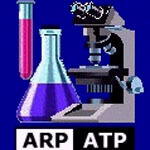 Earning more awards than any other health institution in the state, The University of Texas Health Science Center at San Antonio received six Advanced Research Program/Advanced Technology Program (ARP/ATP) awards last month from the Texas Higher Education Coordinating Board. Totaling more than $530,000, the awards were granted to six researchers for current studies that could lead to groundbreaking results in the health care arena.
Earning more awards than any other health institution in the state, The University of Texas Health Science Center at San Antonio received six Advanced Research Program/Advanced Technology Program (ARP/ATP) awards last month from the Texas Higher Education Coordinating Board. Totaling more than $530,000, the awards were granted to six researchers for current studies that could lead to groundbreaking results in the health care arena.
“This is exceptional news for our institution,” said Brian Herman, Ph.D., vice president for research at the Health Science Center. “We had a limit of 22 proposals that we could submit, and received 6 percent of the awards and 6 percent of the money.”
The ARP/ATP grants were created by the Texas Legislature in 1987 as competitive, peer-reviewed grants programs to fund scientific and engineering research projects of faculty members at Texas higher education institutions.
“In last year’s competition we didn’t receive any awards,” Dr. Herman said. “This proves that our research is now recognized as state-of-the-art, and the contributions of our researchers are being recognized more broadly in the state of Texas.”
The award recipients had to pass an intense seven-step process, including meeting with two large review panels on site, and eight smaller panels that met through a series of conference calls to produce ranked lists of the most outstanding proposals for each research area. An electronic tool developed by coordinating board staff expedited their work of evaluation, scoring and ranking. The recommended proposals were then considered by the panelists to be equal to or better than those funded in national competitions.
“It is a rigorous peer review process in which our institution performed very well,” Dr. Herman said. “We’re proud to be the state’s top health-institution recipient. I am hopeful and expect that our success with this program will only continue to grow.”
The grants recipients include Marc Feldman, M.D., associate professor of cardiology, for his study “Non-polymer coating for drug eluting stents;” Sang Eun Lee, Ph.D., assistant professor of molecular medicine, Institute of Biotechnology, for his study “Role of chromatin remodeling complexes in genome integrity;” Richard Luduena, Ph.D., professor of biochemistry, for his study “Tubulin isotypes and cancer;” Stephen Milam, D.D.S., Ph.D., professor and Hugh B. Tilson Endowed Chair of oral and maxillofacial surgery, for his study “Dynamic regulation of pain neurons by sex hormones;” Babatunde Oyajobi, M.D., Ph.D., assistant professor of cellular and structural biology, for his study “Micro SPECT/CT imaging of cancer-induced osteoblast dysfunction in vivo;” and Eugene Sprague, Ph.D., who holds the Julio Palmaz Professorship in radiology, for his study “Reendothelialization in a novel injured arterial model.”

